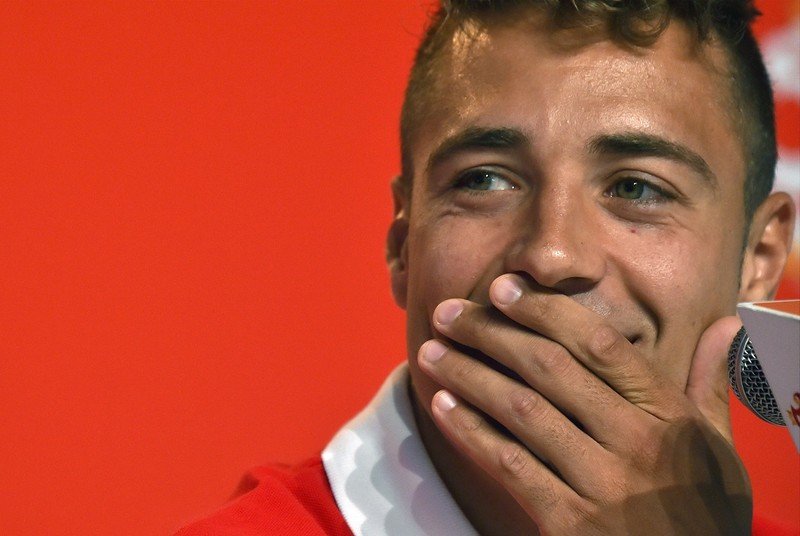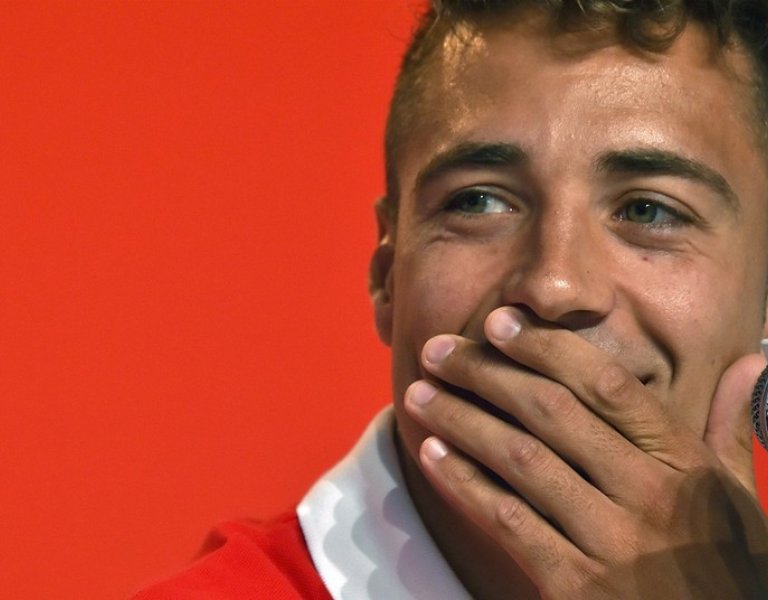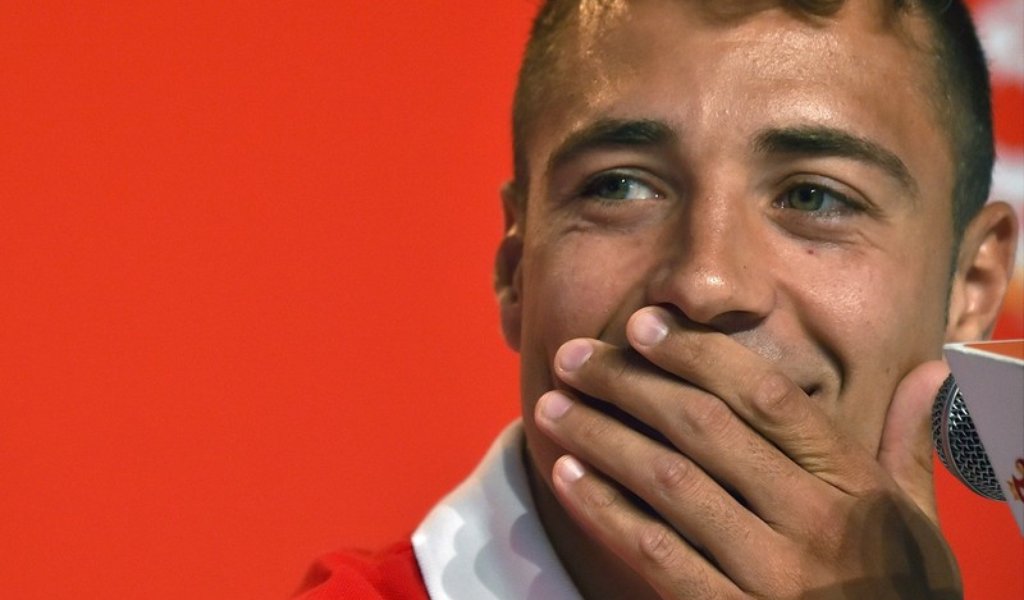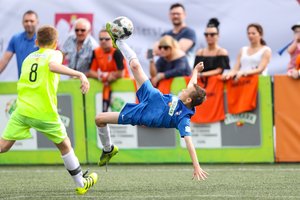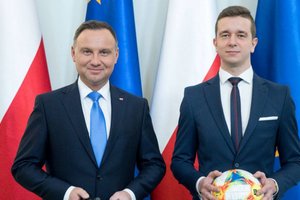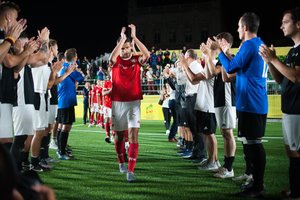Thiago Cionek – a patriot from Curitiba
They called him a plastic Pole. They asked why he wanted to play for Poland. They said he was only doing it to promote himself. But he knows more about the land of his ancestors than some of his teammates.
The case of Thiago Cionek is a good illustration of how one interview can change how a person is perceived. Although his great-grandfathers emigrated to Brazil before World War I and he was born in Curitiba, his knowledge of Poland is impressive. He proved this recently in an interview with the website Łączy nas piłka [Football connects us] in which he spoke with ease about subjects including the secret burial of victims of Stalinism in Warsaw’s Powązki cemetery.
“Whoever doesn’t know the history of Łączka [the Meadow – the commonly used name for the secret burial site - transl.] doesn’t know and doesn’t understand the history of Poland. It interests me, I’ve been there and I’ve read about it. It widens my knowledge and horizons, strengthens my patriotism,” says Cionek. He admits, however, that his passion for history came with age. “I didn’t like that subject at school. But when you are here, you can touch it, see up close the places where people fought, you start to look at it differently. I was in Auschwitz. It’s part of history, not only of Poland, but of the whole of civilization.” “It’s important that people know what happened and that they don’t make the same mistakes in the future,” underlines Adam Nawałka.
Cionek is not the first footballer from another country to put on the white and red shirt and display the white eagle on his chest. Before him came Ludovic Obraniak and Damien Perquis, who were born in France (Sebastian Boenisch and Eugen Polanski grew up in Germany but were born in Gliwice and Sosnowiec respectively). And recently Taras Romanczuk, who comes from Kowel, has joined the squad. All of them – unlike Emmanuel Olisadebe and Roger Guerreiro – have Polish roots.
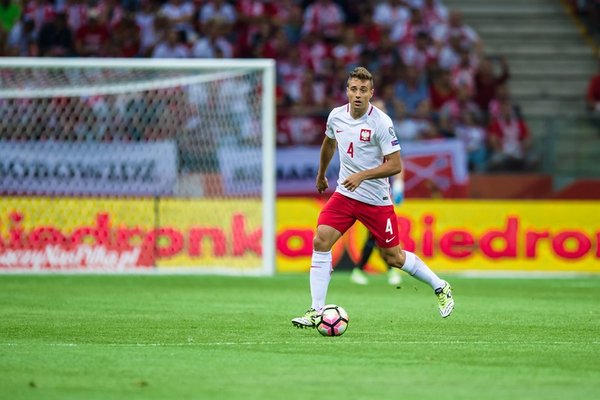
Agata Sokólska and Franciszek Cionek emigrated to Brazil at the beginning of the last century, abandoning Lipinki, a small town in the south of Poland. They lived in Curitiba, the largest Polish community in Brazil, where Thiago was born in 1986. “Why did my family leave Poland? I don’t know exactly, but I can guess, knowing how hard it was to live in those days. It was the beginning of the 20th century; the country didn’t exist on the map. Everyone was looking for a better life. In Brazil, Polish colonies were created. There was a lot of land but not many people, so everyone could get their own plot. The Poles maintained their culture. We could talk about history the whole evening,” laughs Cionek. “It looked like the Polish nation might not survive, and I came back after 100 years to play for the national team of their ancestors. I’m very proud of that, especially knowing Poland’s beautiful history,” the footballer emphasises.
He applied for a Polish passport in 2009 and received one two years later when he was playing for Jagiellonia Białystok. He came to Poland in 2008 from second league CBR Maceio. He had tests at Lech Poznan, but only took part in one training session. It was then that Zbigniew Boniek stepped in to help, recommending him to Michał Probierz, who took him to Jagiellonia. Thiago to this day says that Probierz is the coach he owes the most to.
Despite playing in Italy for six years, Cionek still follows how Jagiellonia are doing. He admits that he could already write a textbook on tactics. After playing for Padova, Modena and Palermo, he reached Seria A by joining last season’s Seria B winners SPAL from Ferrara in January on a 2.5-year contract. He preferred to spend the last months before the World Cup playing for a team battling against relegation from Serie A, rather than the one fighting to return to the elite. He pushed Bartosz Salamon out of the starting line up and in a few weeks he became one of the most important players in the team and a favourite with the fans and the coach.
He admits that he hasn’t always been the best behaved and enjoyed teasing his teammates – always within reason though. Now, he’s making life difficult for his opponents.
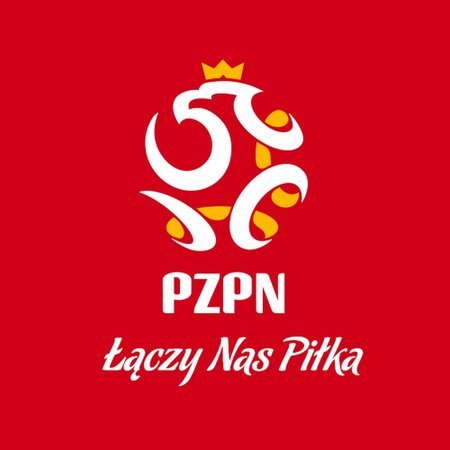
“They said in Poland that he’s brutal? That’s strange. I would say rather that he is ‘concrete’. Not only in the sense of aggressiveness, but also determination,” explained the coach Leonardo Semplici recently in the sports daily Przegląd Sportowy. “When we were thinking about signing him, we looked first at the psychological aspect, then at his performance on the pitch.
Cionek came to Ferrara with the same mission he had fulfilled in Palermo: save the team from relegation. When he arrived, they only had 15 points and were conceding two goals per game on average. Today, this number has been halved. There is still a long way to go, but SPAL don’t want to bid farewell to Serie A so soon after coming back after half a century. Thiago showed off his skills in March against Juventus (0:0). He neutralised Gonzalo Higuain and Paulo Dybala and was voted the best SPAL player. This was a big deal as Juve didn’t manage to score this season in only five other games: against Barcelona (twice) and Real in the Champions League and against Inter and Napoli in the league.
Cionek made his debut in the national team only under Nawałka, in a friendly match against Germany, which ended in a goalless draw. “I felt proud when I sang the anthem. It was the most important moment in my career,” he said after his debut in May 2014. To learn the words to the national anthem, Thiago called in the help of his fiancé Justyna Lamirowska, who comes from Grajewo and is a graduate of Bialystok University of Technology. They have been together for over seven years. In 2016, they planned to get married, but Thiago was called up to the national squad for the European championship and they had to postpone the wedding. Polish state broadcaster TVP was also caught by surprise and didn’t have his photo in its database, so instead used an image... from a computer game.
The first game he ever played for points was in Euro 2016 against Ukraine. He has now played 17 matches for the national team, and his undoubted advantage is that for a long time he has played for clubs that field three central defenders, a formation used by the national team.
Cionek is keeping his diary open for June and July. Although he doesn’t often start in the first eleven, it is difficult to imagine that he won’t be on board the plane to Russia. “Each team needs its stars and those who do the leg work. I never complain. I’m ready to do anything,” he assures us.
Author: Tomasz Wacławek
Source: Rzeczpospolita
08.06.2018
